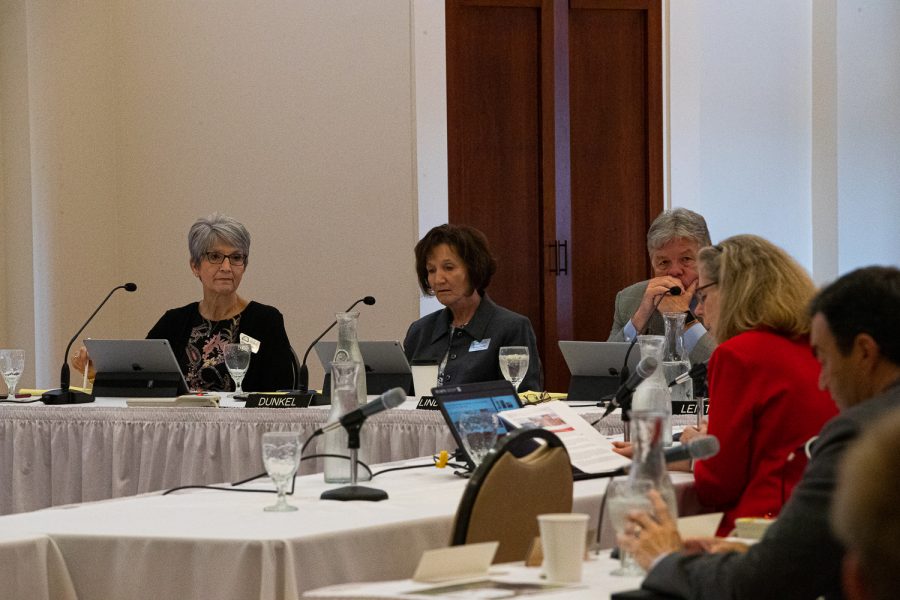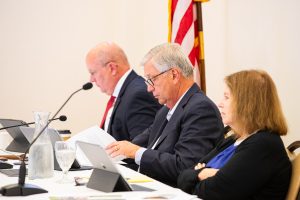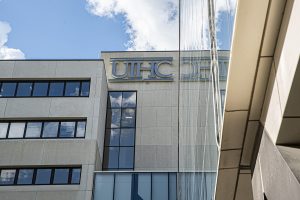State Board of Regents approve construction moratorium to end in June 2022
The state Board of Regents approved a recommendation for a construction moratorium for capital improvements at the regent institutions, this moratorium will be effective immediately but will not impact current projects.
Iowa State University President Wendy Wintersteen gives a presentation to the Iowa Board of Regents during a meeting at the Iowa State Alumni Center in Ames, Iowa, on Thursday, June 6, 2019. The Regents voted in favor of a four percent tuition increase starting in the fall semester of 2019.
September 23, 2020
The state Board of Regents approved a proposal from the regent’s advisory group for a construction moratorium on new capital projects, effective immediately lasting until June 30, 2022.
The advisory group, created by Regent President Mike Richards, is comprised of Regents David Barker, Nancy Dunkel, Jim Lindenmayer, and Nancy Boettger.
This is the first recommendation from the group, but there will be other recommendations to come, Barker said during Wednesday’s virtual regent meeting.
The group has worked with administrators at the University of Iowa, Iowa State University, and University of Northern Iowa to understand the many programs at the universities to create the recommendations, Barker said.
“Even before the COVID-19 pandemic, this board was concerned about demographic projections showing a possible decline in the college-age population over the next ten years,” Barker said. “We were also interested in whether online course delivery might affect our enrollments and our need for physical space.”
The pandemic has greatly accelerated the concerns of the board, he added. It’s difficult to accurately predict anything right now, and the regents don’t know to what extent the shifts in course delivery method are permanent, he said.
It could be possible that the need for square footage in campus buildings will decrease, Barker said. Because it is unclear where the demands for higher education are heading, the group is recommending a construction moratorium to limit the additional square footage added to the university campuses.
RELATED: State Board of Regents advisory group proposes construction moratorium
There will be exceptions to the moratorium for construction projects that are currently underway, projects that deliver healthcare, and philanthropically funded projects, Barker said.
“Until we have a better understanding of our future needs we need to be judicious and cautious, and for now, not put resources into brick and mortar when our precious resources may be needed in other areas,” he said.
Since new buildings won’t be constructed, making use of and maintaining existing spaces will be important, he added.
Addressing deferred maintenance in the buildings is necessary in order to keep them in service as long as they can be used, he said. The state Board of Regents asked for $30 million in state funding for fiscal 2022 for deferred maintenance.
“We have 840 buildings containing 42 million square feet with an average age of 42 years, replacing them would cost $21 billion, which of course we do not have,” Barker said.






